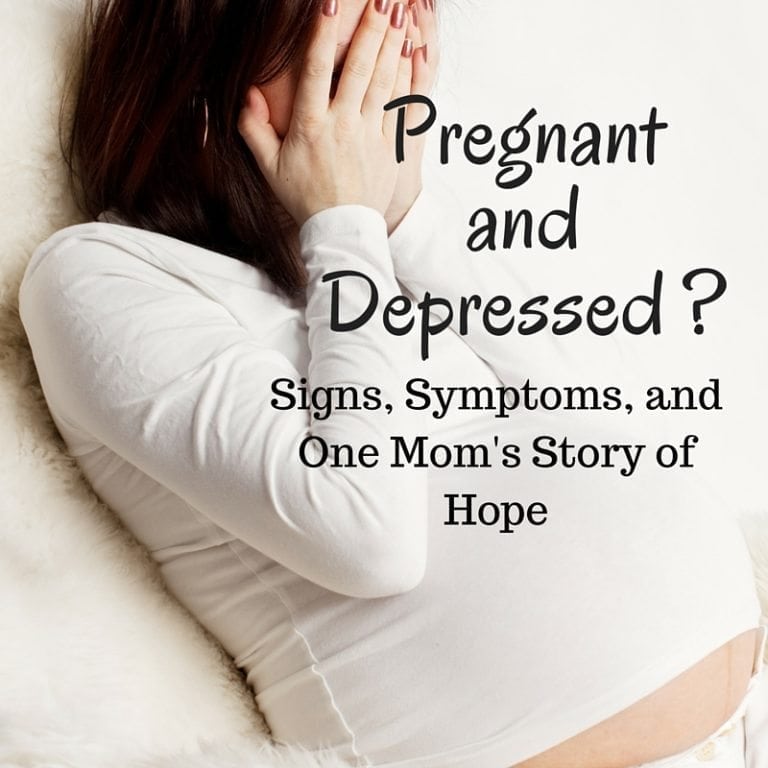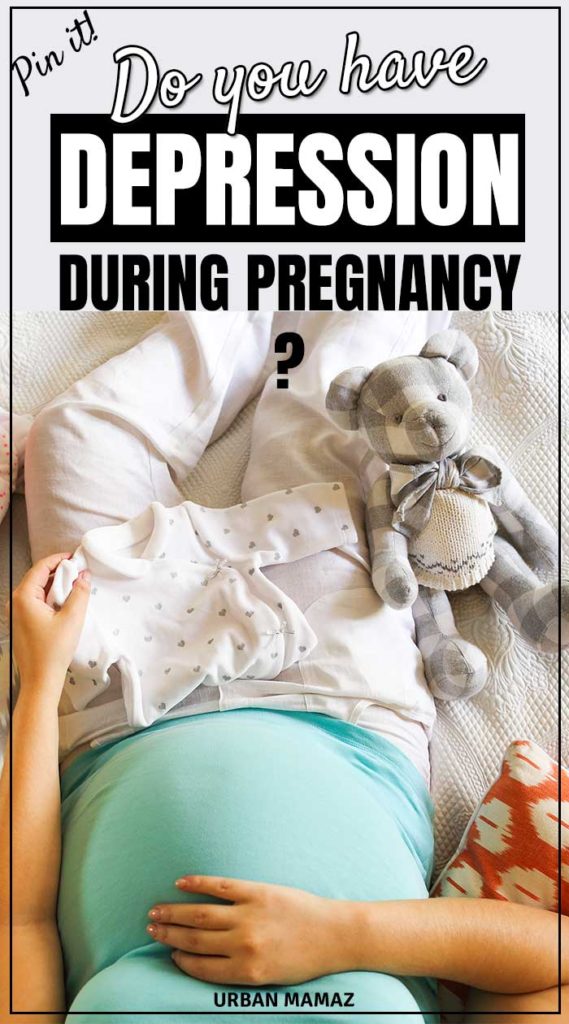Depression During Pregnancy

Contents:
- The Depression Symptoms
- The Causes of the Depressive Disorder of Pregnant Women
- How to Cope With Depression
Depression in Pregnancy
Pregnancy is the most beautiful time. However, some psychological problems may exist. The most common of them is the depressive disorder. About 10% of pregnant women are subject to this malady.
Referring to this topic, it is necessary to point out that depression during pregnancy is not just mood differences, caused by hormonal changes, but a serious disease. The future mother may be absorbed by the state of despondency and joylessness. Even the approaching childbirth may provoke fear and anxiety. A pregnant woman may become a hostage of her internal stress.
Depression of pregnant women may lead to serious health problems. The nervous system, exhausted by depression, may fail to cope with the stress. A woman should keep in mind the future childbirth. It is necessary to consult a gynecologist or psychotherapist at first signs of the depression appearing to avoid the bad consequences and to feel the happiness of motherhood.
The Depression Symptoms
The pregnant women depression may develop variously. Some women may cry or suffer from insomnia or have fears about future. Such fears may even lead to suicide attempts. However, there are symptoms, by which the depression may be verified.
These are:
- Irritability;
- Anxiety;
- Loss of concentration;
- Hunger or loss of appetite;
- Constant fatigue;
- Despondency;
- Fear of going outside;
- Hypochondria;
- Constant drowsiness;
- Low self-esteem;
- Feeling of hopelessness and joylessness;
- Feeling of guilt;
- Lack of desire of communication;
- Self-doubt;
- Tearfulness;
- Sleep disturbances (insomnia, nightmares).
The Causes of the Depressive Disorder of Pregnant Women

Before, it was assumed, that hormones produced during pregnancy prevented the development of depression. This conclusion was made by the specialists in the result of the observation of future mothers. Most of these women felt the elation. Nevertheless, over time, many experts noted that the stress and physical exertions during pregnancy make women more prone to depression.
Everyday problems may complicate the situation as well. So, one of the most common causes of the depression is the relationship with the future father of the child. Single women and the women conflicting their partners are significantly amenable to depression development. The women may be not able to cope with difficult situations.
In addition, depression during pregnancy may be triggered by the following factors:
- Daily stress (problems at work, moving home, quarrels and divorces) may cause a nervous breakdown and depression as a result.
- Low salary. In the period of pregnancy, this factor becomes more significant. What to do if the money is barely enough? Low income may cause much anxiety, as the woman has to take care not only of herself, but of a child as well.
- Psychophysical problems. One of them is toxicosis. The morning sickness and poor physical health are taken with despair. In addition, if the pregnancy is unexpected, these problems may become the reasons for the depression development.
- Negative experience of a previous pregnancy. According to the results of psychological research, a woman’s depression during a previous pregnancy may influence her present pregnancy.
The depression during pregnancy may be caused by unpleasant memories, if a woman has suffered from emotional, sexual or physical abuse. Changes occurring during pregnancy may recall the long-forgotten memories. Therefore, if a woman is, or has been subjected to any kind of violence, she should inform the personal doctor about this fact.
- Depression in the past or the presence of relatives, suffering from depression, may become the risk factors. This may cause not only the prenatal, but the postpartum depression as well.
- An unplanned conception may become the strongest stress factor, which may lead to the depression.
- The disease development may be also affected by a lack of serotonin, dopamine, noradrenalin, or by the long-term usage of sedative drugs.
These are only some factors. Actually, any stress factor, which disturbs the emotional balance of a pregnant woman, may cause the psychological disorder.
How to Cope With Depression

- Do not lay on yourself all things during pregnancy: arranging of the baby’s room, the apartment repair, preparing the reports at work. The most important things in this period are health and well-being. Pregnancy is a great time for pleasing yourself. There may be lack of opportunity for doing it after the childbirth, because of the baby fuss.
- Exercise daily. Moderate physical training makes the muscles stronger and brings emotional satisfaction.
- Get rid of bad mood. It is necessary to cope with distemper and to be involved in the activity. It is preferable to find a hobby: embroidering, drawing, reading etc. Take advantage to do something new, for example, visit the swimming pool.
- Communicate with friends and family. Sharing problems with close people may help to cope with low spirits and anxious thoughts.
- Relax more and avoid overworking. Ask the husband to make a gentle massage of the lower back and feet.
- Keep to a healthy diet. The food should not be too high caloric. It is necessary to eat healthy food, including dairy products, fresh fruits and vegetables. Avoid pastries and sweets.
- Look at the situation from the outside. To avoid family conflict try not to make hasty conclusions.
- Walk in the fresh air.
- Do not use pills to fight depression. Do not take antidepressant drugs or medications applied before pregnancy.
- Protect yourself from negative information. Avoid watching violent programs or films.
- Create a cozy home atmosphere without worries and sadness.
- Learn to love and respect yourself. Try to enjoy the period of your pregnancy.
These pieces of advice are well known, however, people may forget them. It is necessary to consult your personal doctor, who observes the pregnancy, in case a woman feels anxiety or possesses negative thoughts. It is important not to delay the treatment, because the mother’s health directly affects the well-being of the child.
I had a terrible depression starting with the early pregnancy. It seemed to me that my life had ended with the pregnancy. But now I’m fine.